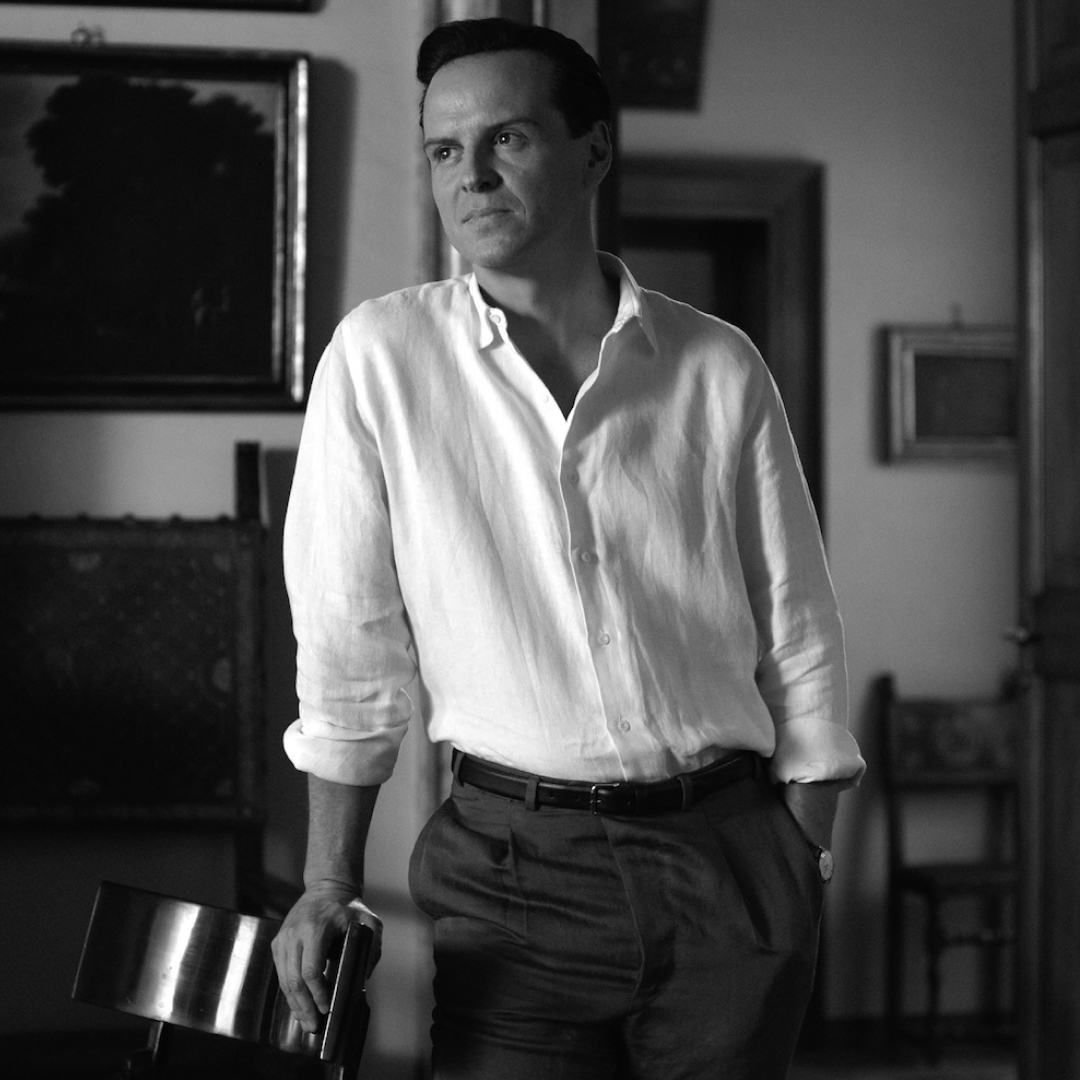
In 1955, Patricia Highsmith published The Talented Mr. Ripley, a chilling psychological thriller that introduced the iconic character brought to new life in Netflix's new miniseries Ripley. Portrayed by Fleabag and All of Us Strangers star Andrew Scott in the new adaptation, Tom Ripley is a small-time confidence man living in New York who's tasked with traveling to Italy to convince trust-fund loafer Dickie Greenleaf (Johnny Flynn) to return to the States. Upon meeting Dickie, Tom becomes obsessed with the man (wanting to both be him and be with him) as well as his easy, wealthy lifestyle. When he realizes that Dickie is beginning to tire of him, Tom's sociopathic and murderous tendencies emerge and it becomes clear the scammer will stop at nothing to retain a material freedom.
The original Tom Ripley is the first (or maybe just the most famous) literary example of a social climber turned serial killer. Countless other writers have taken inspiration from Highsmith's novels—Ripley went on to appear in four book sequels by the author—including some direct and indirect adaptations that have become cult classics. Below, we compare Ripley to the source novel and other famed adaptations, while breaking down just why generations of readers have remained fascinated with Tom Ripley.
Warning: Light spoilers for Ripley, The Talented Mr. Ripley, and Saltburn ahead.
'The Talented Mr. Ripley' (1999)
Portrayed by Matt Damon fresh off the success of Good Will Hunting and Saving Private Ryan, the Tom Ripley of Anthony Minghella's 1999 film is a more dramatic version of the character. Highsmith's Mr. Ripley is an established con-man who already has small-time scams going in New York before he meets the Greenleafs. Instead of having Mr. Ripley start out as a criminal, the film's Tom is making ends meet as a piano player and bathroom attendant, sneaking illicit peeks at the opera when he should be at his post. Tom meets shipping magnate Herbert Greenleaf by chance at a society function; once he gets to Italy and meets Dickie (a seductive Jude Law in what would become his breakout role), the two share an easy and boyish friendship. It's all a much gentler depiction of Tom than the more sociopathic, shy, and shrewd Toms from the original novel and the 2024 miniseries.
Tom Ripley has been analyzed as queer-coded since Highsmith's novel entered the literary canon, but the book itself doesn't identify Tom as queer. 1955 Tom's sexuality is never specified; he appreciates beauty but flirts with men and women mostly as a means to an end. Per Them, Highsmith herself dismissed the subtext of Tom's sexuality prior to her death in 1995. The author reportedly commented, "'I don’t think Ripley is gay,' adding that while he 'appreciates good looks in other men,' he may just not be 'very strong in the sex department.'" Still, it's clear that Dickie especially affected him, and a queer interpretation adds another layer to Tom's distance from conventional 1950s society.
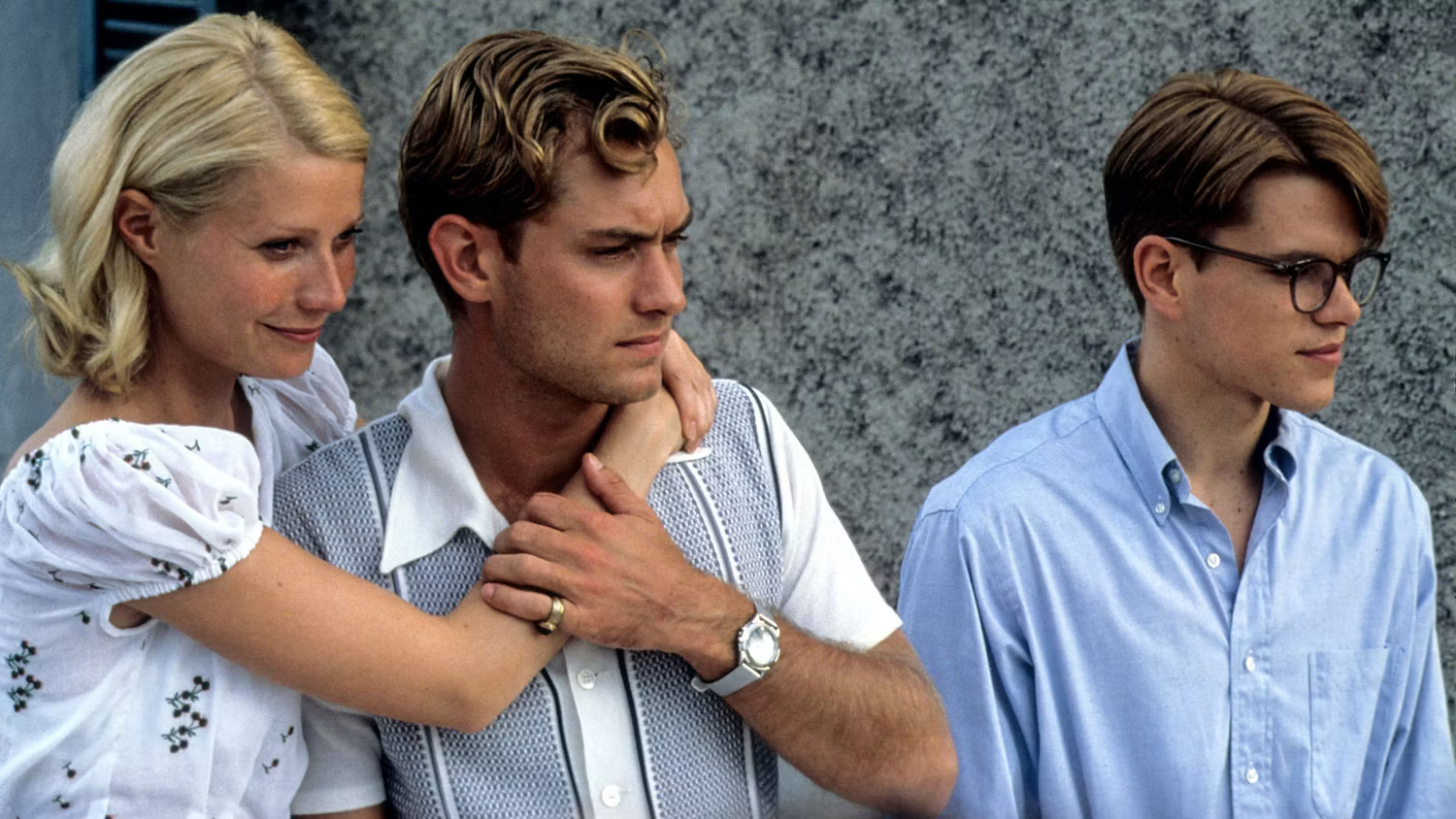
Minghella's adaptation brings decades of speculation to the forefront, depicting Tom's feelings for Dickie as overtly romantic while also characterizing Tom as more lovelorn. (Speaking to Vanity Fair in December 2023, producer William Horberg said of the film, "We felt in several ways the book needed to be reconsidered for the time that we were making the movie.") When 1999 Tom kills, it's because he's either been pulled into emotional despair by Dickie's rejection, or because he's been backed into a corner. His character has a more deliberate arc of starting out relatively innocent and slowly descending into life as a ruthless killer. (The descent also extends past Dickie, with the help of two original characters presented as love interests for Tom, played by Cate Blanchett and Jack Davenport.)
It also helps that the film doesn't hold back with showing how much of a selfish cad Dickie Greenleaf can be. 1999 Dickie is uncaring and mean; even during the happier days in Mongibello (the small Italian island where Dickie and Marge live) there's a subplot where Dickie's affair with a local Italian woman has tragic consequences. There's already a natural tendency to root for Tom as an underdog on a class level; add in Dickie's casual cruelty and Tom looks even more relatable by comparison.
With Tom written as more sympathetic in his motivations (who else hasn't gone mad for love?) and Dickie being the undeniable worst, 1999's The Talented Mr. Ripley alters the original story to follow more of a traditional narrative. It updates the original work for the then-present day, when Hollywood was making great strides in LGBTQ+ representation, but it would be a great mistake to think that film is a scene-by-scene remake of the original novel. It's better viewed as an evolution of the iconic story (and an absolute must-watch for anyone craving an acclaimed '90s film).
The Talented Mr. Ripley is available to stream on Paramount+ with Showtime, or to rent on Prime Video and other platforms.
'Saltburn' (2023)

We should note: Saltburn isn't a direct Talented Mr. Ripley adaptation, as the film's creator and director Emerald Fennell has clarified that the novel was not one of her reference points used while writing her 2023 film. (When asked, she told RadioTimes.com, "It actually wasn't really [something I was thinking about].") However, multiple critics have pointed out that main character Oliver Quick (played by Barry Keoghan) is enough of an ideological descendant to Tom Ripley (intentionally or not) that a comparison is warranted.
A quick run-through of the similarities: Oliver is a middle-class (lower, upper, who knows?) student at Oxford who becomes friends wealthier classmate Felix Catton (Jacob Elordi). Felix is fine and likable but he doesn't possess the elite's tendency to move through life without considering what's left in their wake. (Neither Dickie nor Felix have to worry about pesky things called consequences.) Felix eventually invites Oliver into his family's home, Saltburn, despite skeptical cousin Farleigh (Archie Madekwe) being wary of the newcomer. (Farleigh, meet Freddie Miles, you'd get along.) Whenever it seems that Felix could get tired of Oliver, the striver, who's clearly obsessed, does whatever's in his manipulative power to stick around Saltburn. Once Oliver and Felix come fully at odds, it—spoiler—ends in murder.
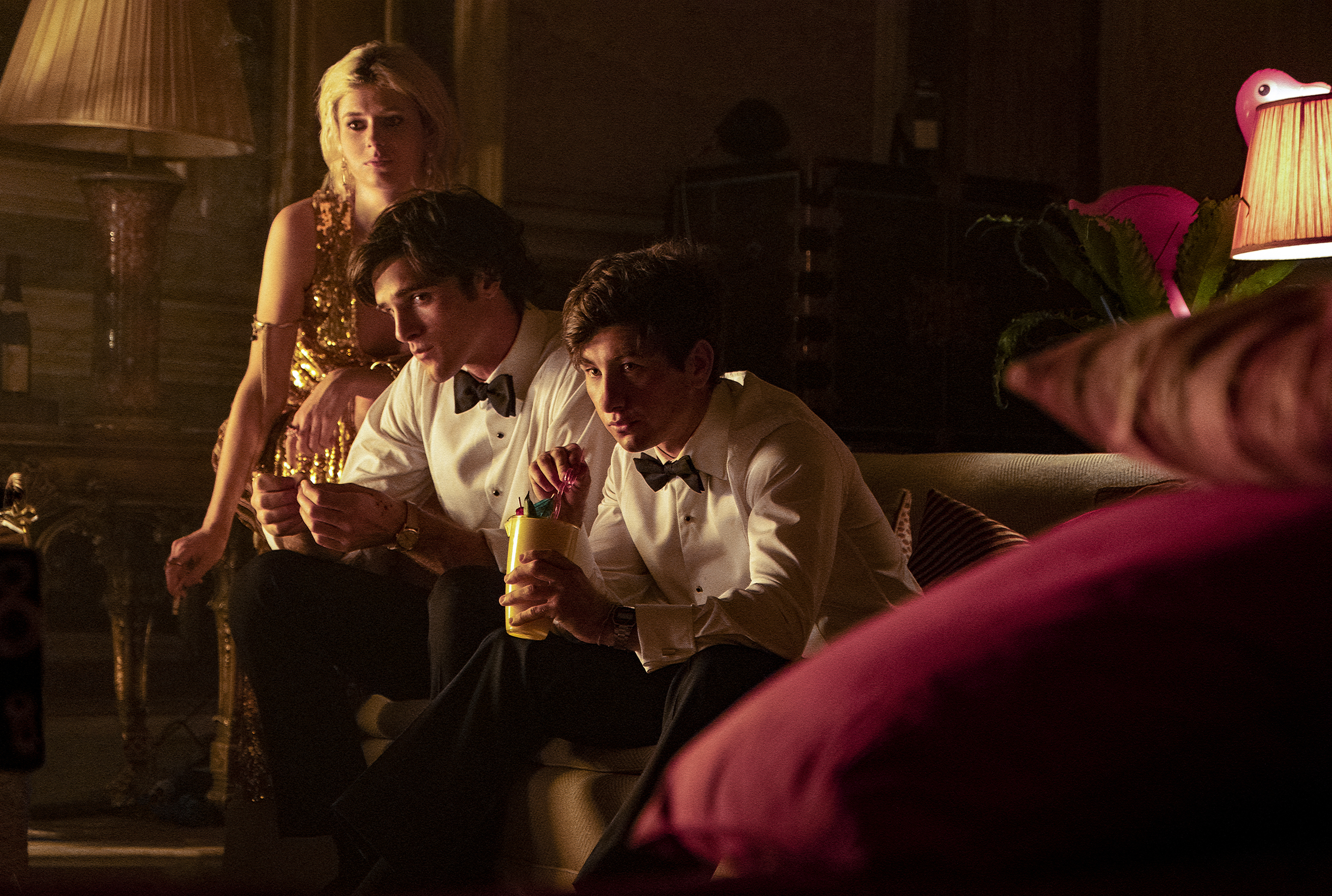
Spoiler warning for the end of Saltburn. The controversial ending of Saltburn jumbles up any one-to-one comparisons, but (as many have pointed out) it also jumbles up Oliver's overall motivations. It's revealed in the end that, Oliver actually masterminded his friendship with Felix from the very beginning, all in an effort to get full control of Saltburn. Rather than Oliver becoming obsessed with Felix to the point of bathwater slurping, he really "hated" the Cattons all along. The new knowledge brings up so many questions: Was every moment of Oliver throughout his time with Felix just a performance? If so, what was the point of those viral scenes of lust and depravity that no one but the audience could see? Unfortunately, any chance at the film unpacking this final reveal and giving context to help viewers truly understand Oliver is left unseen. Instead there's a solitary nude dance to "Murder on the Dance Floor."
Though it may frustrate, Saltburn does serve as a clear example of the tense tightrope walk that Tom Ripley navigates as a compelling villain. Whether you find him sympathetic or not, Tom is fascinating to follow because his unpredictability doesn't exist purely for shock value. Even in the original novel, his motivations for his crimes are always understandable and relatable (given the whole stretch into homicide). Oliver Quick unfortunately just falls short of the bar Tom Ripley set.
Saltburn is available to stream on Prime Video.
'Ripley' (2024)
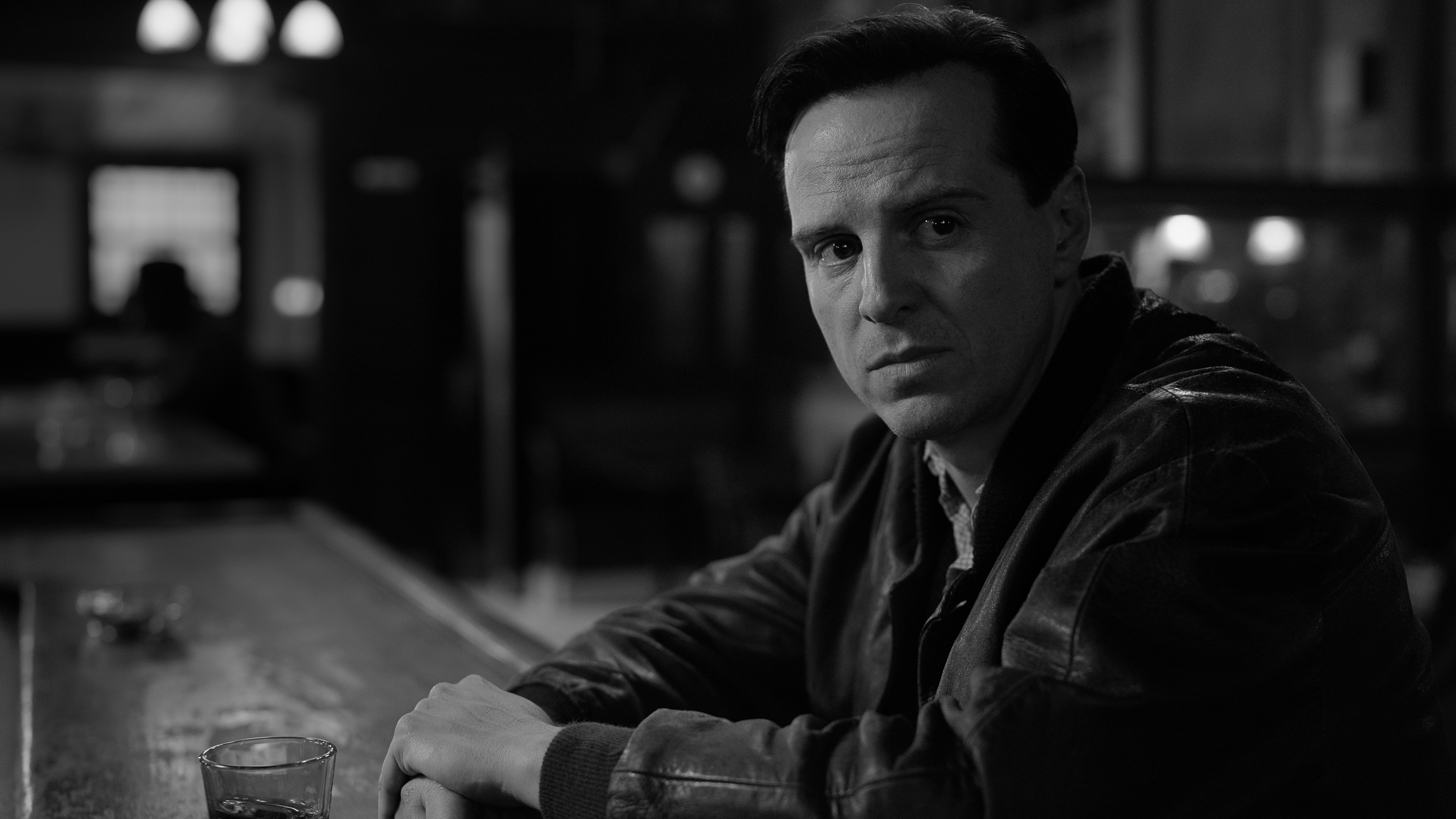
Writer-director Steven Zaillian's 2024 miniseries Ripley is the most book-faithful adaptation of The Talented Mr. Ripley thus far. (Even Purple Noon, René Clément's 1960 French-language movie adaptation starring Alain Delon, takes a significant departure from the novel.) The Netflix series steadfastly follows the plot of the novel, but distinguishes itself through stylistic choices and characterization. The most notable decision is to shoot the entire show in stunning black-and-white cinematography, which Zaillian described at an early screening, per IndieWire, as evoking the mood of Highsmith's "quite sinister and quite dark" novel. "I just couldn’t imagine that taking place in a beautiful Italian setting with bright blue skies and colorful outfits and things like that," he told the outlet.
Ripley is also the first time that sexuality is explicitly brought up during Tom and Dickie's friendship. After the pivotal turn where Dickie catches Tom secretly dressing up in Dickie's own clothes, the shipping scion makes a point to tell Tom, "I'm not queer." Dickie also points out that his girlfriend Marge (Dakota Fanning) suspects that Tom is queer, something that's later brought back up in jealous accusations where Marge questions why Dickie just can't cut Tom loose. The answer is more fleeting in Ripley (there isn't much natural chemistry between Scott and Flynn to fill the cracks), but the fact that the question is verbally raised is significant, even without considering that Scott is the first openly-gay actor to ever play Tom Ripley on screen.
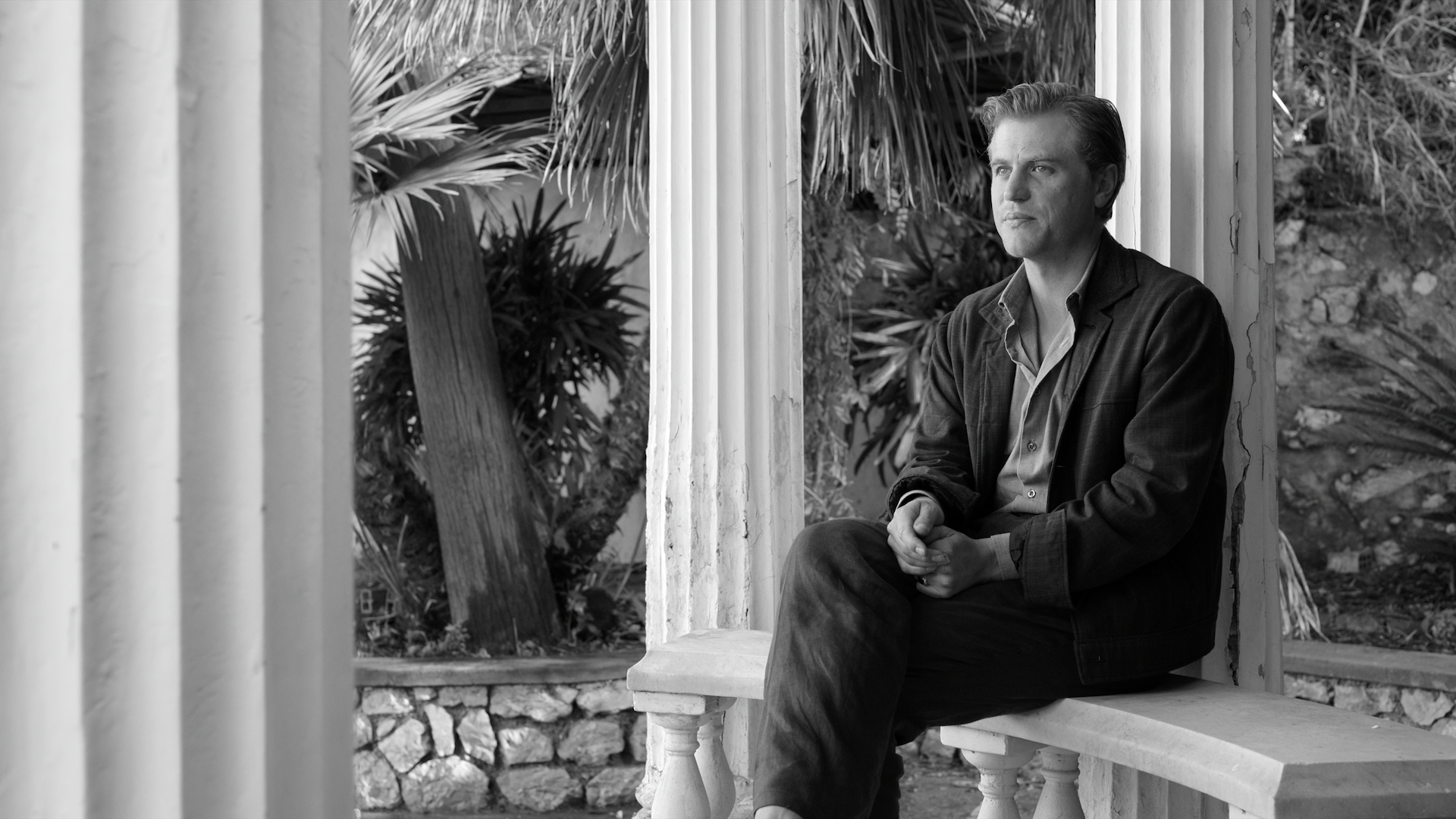
Ripley also stands apart from previous Talented Mr. Ripley adaptations because it truly feels like Highsmith's novel come to life, both in its noir thriller leanings and its runtime. As Zaillian pointed out, a book can't be read in just two hours. “It takes eight hours, 10 hours, 12 hours—and I felt that the pace and the beauty of the storytelling in that book I would try to create in this form.” The eight-episode series relishes in the extra time spent observing Ripley and delving into what makes him tick. Even dedicated fans who've read the novel and watched the 1999 film a dozen times each will likely be enthralled by the new adaptation's choices, including a fascinating extended sequence showing just how hard it is to dispose of bodies, whether at sea or on land.
Comparing these three works, Ripley is also the one that best depicts why Tom Ripley is the way he is, providing as close a reading that viewers can get without cracking open Highsmith's novel. In episode 3, he tags along with Dickie and Marge as they shop for a new fridge for Dickie's place, and as they debate the model with four ice trays or two, Tom watches with an expression almost as if he's sorry for them. He says, "I'd rather hang myself than buy a refrigerator," before soliloquizing on how such a big domestic purchase leads to others, piling on a sofa and a mortgage. "Before you know it, you're old, you haven't gone anywhere, and then you die, and it all began with counting ice trays." What Tom wants is the opposite of domesticity: "The opposite is freedom."
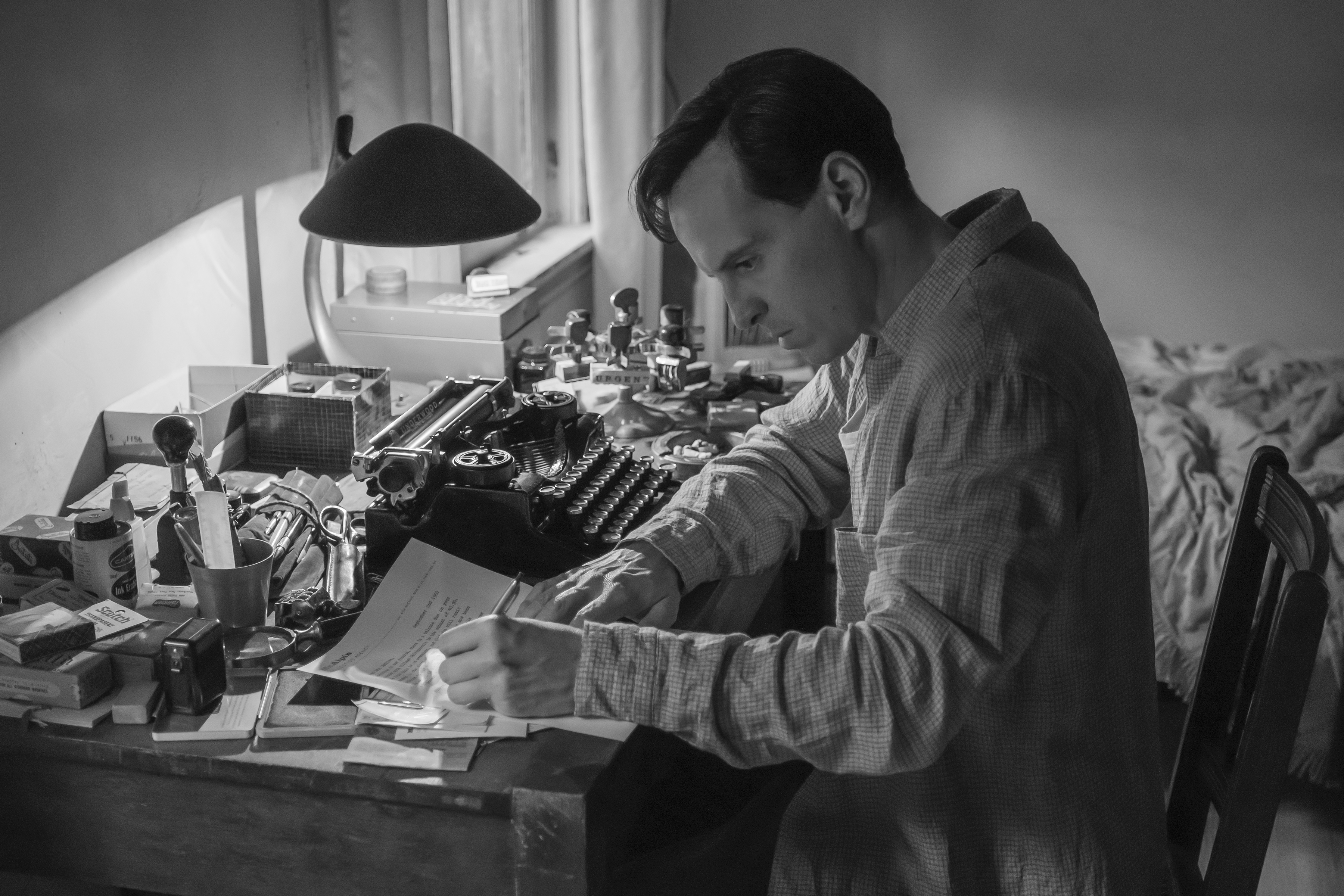
Scott's Ripley also gets back to basics, leaning into the characterization of the titular character which is fascinating but not necessarily relatable (at least not to the average husband, wife, and 2.5 children family). His lifestyle isn't about being in love with Dickie, or coveting the status of wealth even while he derides most of the wealthy people he encounters. What he wants most is freedom, to move through life without the everyday labor that the poor have to endure just to survive. He will always be looking over his shoulder, especially as he continues his criminal career in the book sequels, but that's worth his life of leisure.
The average reader, moviegoer, or Netflix subscriber likely wont live their lives like Tom Ripley, but they'll all fall into fascination with him or one of his offshoots at some point, because he embodies escapism. Tom can be anything and convince people of anything, and that kind of chameleonic power is entertaining as hell, whether it's used for good or evil. He's truly the emblem of a subculture of scammers, and all of us normies will always be amazed to watch him work.







